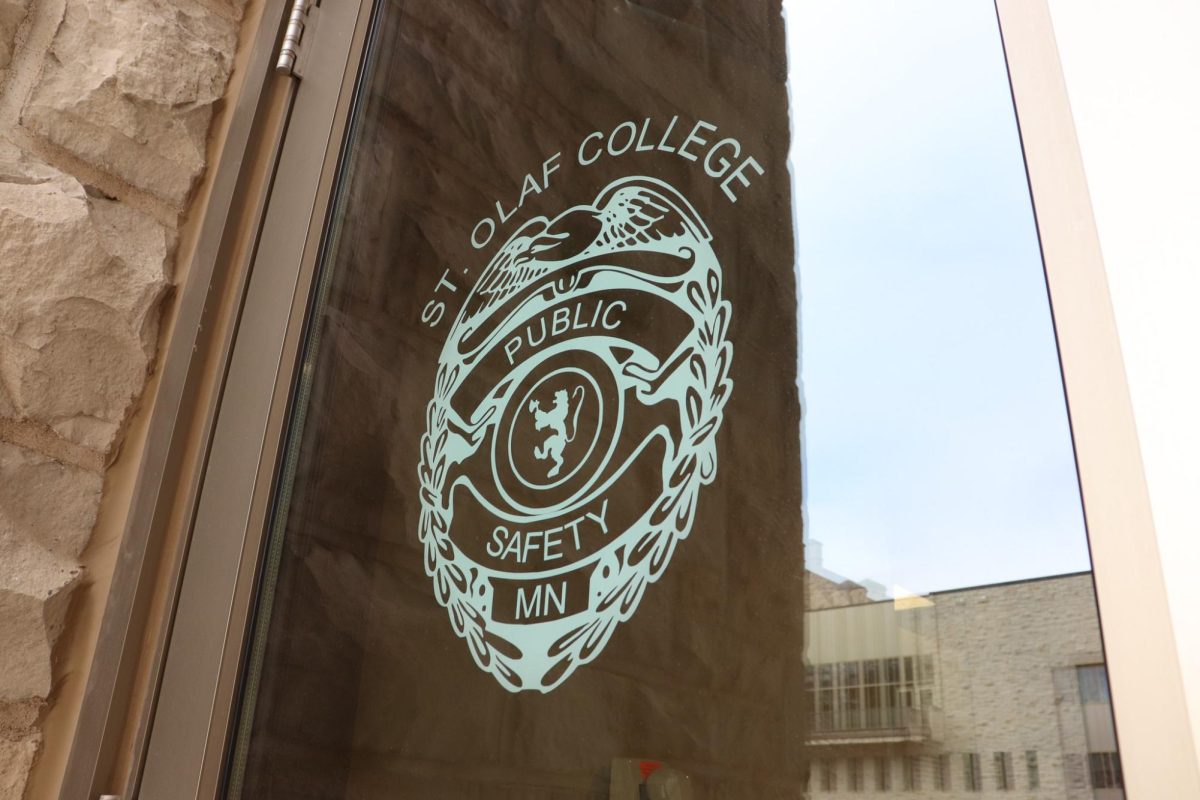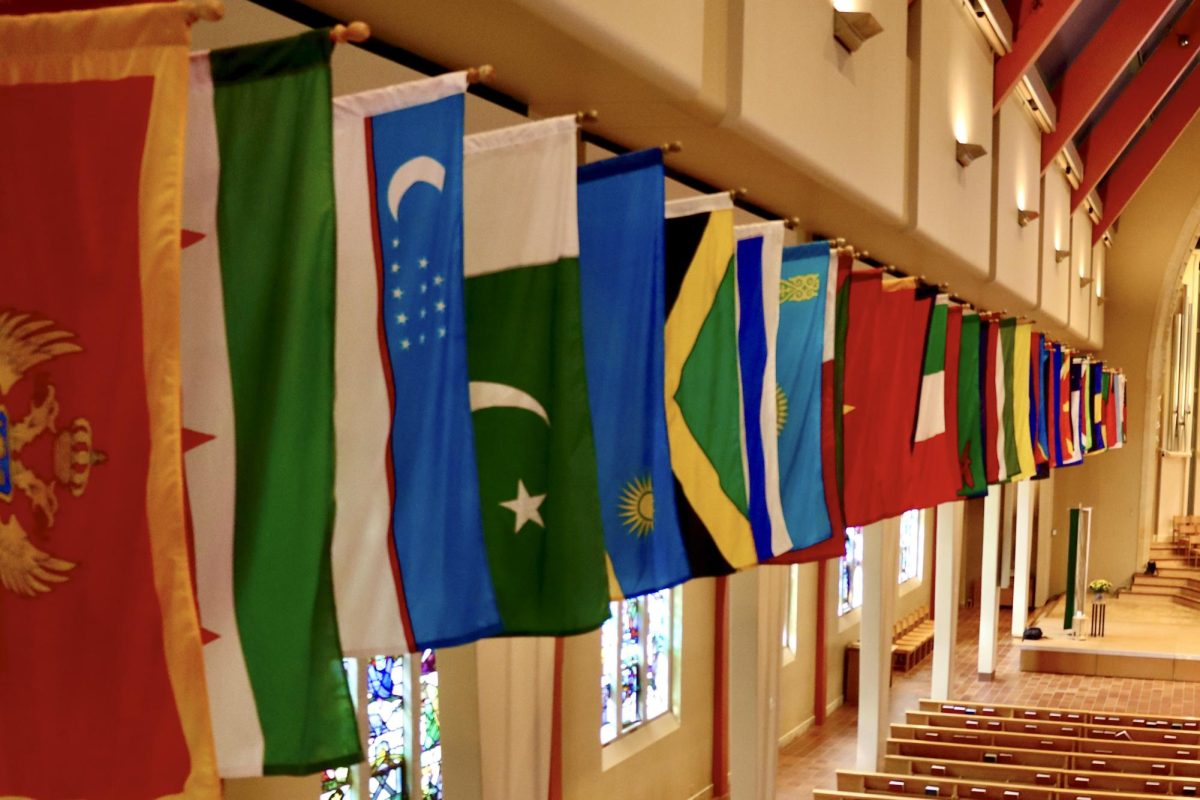On Tuesday, March 28, St. Olaf hosted Executive Director of the Immigration Law Center of Minnesota John Keller. He provided an introductory review of immigration law for students and members of the Northfield community in light of President Donald Trump’s recent executive orders on immigration and on travel from majority-Muslim nations.
“The purpose behind the event was twofold: We wanted to equip people directly affected by the [travel] ban with the knowledge and background they needed so that they could get their questions answered,” Student Government Association (SGA) President Emma Lind ’17 said. “We also wanted to provide a platform so that people who aren’t directly affected might be able to help their friends, families and loved ones who are so they can be a resource for them, as well as hear about what people need to consider if they are affected by the ban.”
Amid a flurry of concern from faculty and students about Trump’s executive orders, Lind and SGA Vice President Sarah Bresnahan ’17 worked with student multicultural senators to formulate an educational response for the St. Olaf community. They also collaborated with the executive board of the Center for Multicultural and International Engagement (CMIE), who agreed that bringing an immigration law expert to St. Olaf would be helpful. They coordinated with the St. Olaf Office of Human Resources and leadership of Carleton’s student government to set up the event and spread the word. Karem Muksed ’17 of Advocates for Immigrants and Refugees worked to bring Keller to campus.
“I think it’s St Olaf’s responsibility to make sure all of its community members are well equipped to deal with what’s happening nationally, especially when something comes out, such as the executive orders and the travel ban, that affects the wellbeing of students,” Lind said. “I see it as our school’s responsibility to help in whatever way is possible.”
Before the event, a box was placed in Buntrock Commons to receive anonymous questions. A link on the Oleville website allowed attendees to submit questions online with their phones or with iPads that SGA stationed around the event space. Papers were also available for attendees who preferred to write their questions. Muksed screened the questions before handing them to Bresnahan to read to Keller. The opportunity for attendees to remain anonymous was critical for the event coordinators, as they wanted people to feel free to ask any question without fear of judgment or being singled out.
Upon entry, attendees could pick up several handouts detailing legal resources and their constitutional rights and procedures for confrontations with Immigration and Customs Enforcement (ICE) officers. Keller lectured students and community members on the immigration law system, various legal statuses, DACA, the flaws in the system and attempted solutions. He then explained the core consequences of Trump’s two executive actions on immigration, one border-based and one “internal,” and the two attempted travel bans. Keller wrapped up with an explanation of immigrants’ personal rights as well as logistical plans to have in place in the event they were to be detained and deported. Afterwards, he answered questions.
One of the most significant pieces of advice Keller gave to those impacted by the recent developments in immigration law is that they must know their rights and not open their door if ICE arrives without a warrant signed by a judge. Additionally, he gave advice on how to prepare in the event they are confronted by ICE officers. These steps include family preparedness plans, a refusal to say or sign anything without an attorney present, setting aside money to pay for bond – as one has the right to ask for bond and its reduction – and hiring a lawyer.
Individuals not directly involved can assist by using social media for advocacy and education, Keller offered. This includes making or sharing crowdfunding pages to raise money for bonds for families. They can also work with student groups and faith communities to increase awareness of how the immigration legal system operates, and they can volunteer with pro bono groups.
While the lecture explained the legal framework, Keller admitted that during the past few months, the laws have changed faster than ever before, meaning that anything could be subject to change. He thus encouraged those impacted by the laws to have a confidential conversation with an attorney in order to understand how the laws affect them directly. They can call the Immigrant Defense Project’s free legal helpline at 212-725-6422.
The audio recording, PowerPoint and handouts from the lecture will soon be accessible on oleville.com. For further research into immigration legal resources, Keller recommended the websites for the American Immigration Lawyers Association (AILA), Immigrant Legal Resource Center (ILRC), the National Immigrant Project and the Immigration Law Center of Minnesota (ILCM). For information from a government source, go to uscis.gov, the website for the United States Citizenship and Immigration Services.





